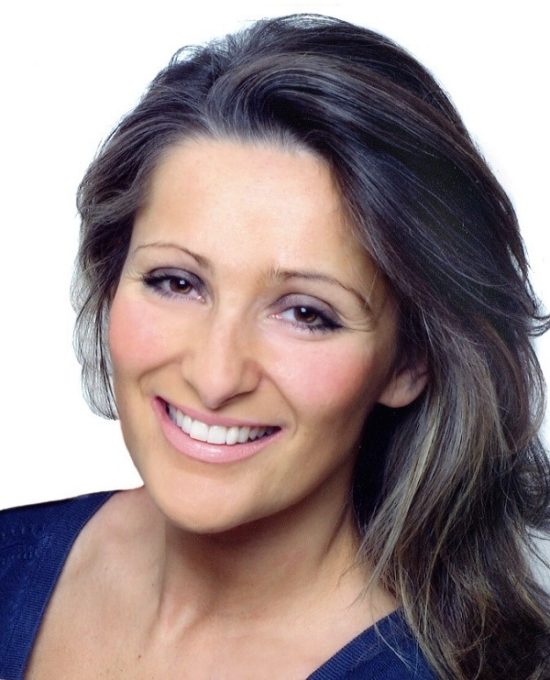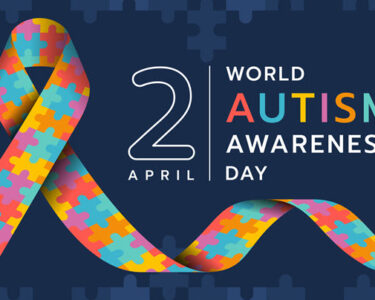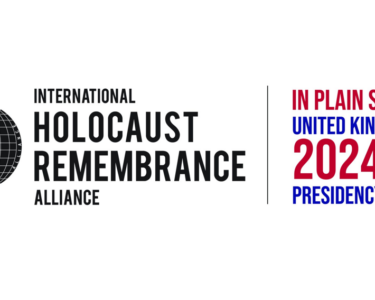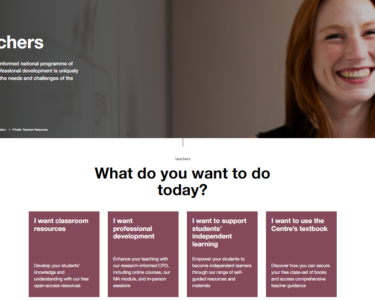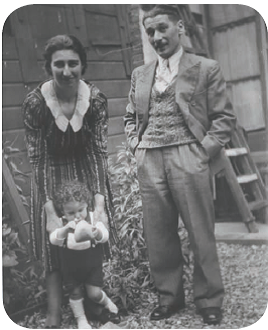
Ruth-Anne Lenga, Head of Academic Programmes at the UCL Centre for Holocaust Education, spent many years working with survivor Leon Greenman in Holocaust Education and closely assisted him in his determination to lead an independent life until his death at the age of 97. To mark this year Holocaust Memorial Day, Ruth-Anne describes the desperate moment that Leon’s world collapses as Dutch police collaborate with the Nazis to isolate and deport its Jewish population. From that #TornFromHome moment, their tragic fate was sealed.
At 10:15pm on October 8th 1942, Leon Greenman had turned out for the night with his wife, Else by his side. Their two-year son Barney was peacefully tucked up in his wooden cot blissfully at peace with not a care in the world while Else’ s elderly grandmother lay fast asleep across the landing having gone to bed a good while earlier, when they were awakened abruptly by a violent knock at the door. Dutch police had arrived to round up and arrest the Jews of Rotterdam, an operation overseen by armed German SA Sturmabteilung (Brownshirts), conducted under the cover of night.
Leon, who was born in London, tried to argue with the young policemen who stormed the home, insisting that, as British citizens, the family was under the protection of the Swiss consulate. But his pleas were in vain. The police gave Leon fifteen minutes to leave the home or face the consequences.
Grandmother fumbled nervously at her dressing gown as she emerged from her slumber to see what the commotion was about. Barney stood up and rattled his cot trying to get everybody’s attention. Else, meanwhile, began to cry and begged Leon not to continue arguing with the armed policemen. It was obvious that their fate was sealed. With that, Leon had no choice but to stop trying to reason with the police and just follow their orders. The family got themselves dressed, rapidly filled pillowcases with food and medicine and rolled up blankets for the journey to an unknown destination.
During this time the police ‘..like vultures circulating their prey’, wandered from room to room of the house eyeing-up the prints Leon had on the wall, his small stock of antique books, and the family’s modest possessions that were delicately placed around and about.
The family was finally loaded on to a coach waiting outside. There they caught sight of the sad, frightened faces of their Jewish neighbours who had been torn from their home in the same nightmare, earlier that evening.
Leon managed to survive the terrifying years that followed and was liberated at Buchenwald in 1945. The rest of the family were brutally murdered at Auschwitz-Birkenau in January 1943 just three months after being taken from their home.
Leon lived a long and lonely life after the war struggling to create some sort of life for himself in the shadow of the past. In doing so he became a British social campaigner and activist, fighting neo Nazism, Holocaust denial and educating the young about the Holocaust in schools across the country. Despite the deeply disturbing nature of his testimony, it continues to inspire, edify and propel young people to be agents of change. The UCL Centre for Holocaust Education weaves Leon’s story into every one of its programmes. Teachers who participate in them and include them in their school practice, speak of the profound impact Leon and his testimony has on them and their students even though he passed away over ten years ago.
UCL Centre for Holocaust Education will be commemorating this week, the memory of the victims of the Holocaust. It continues to be inspired by the courage of survivors such as Leon who found the resolve to build a life after the Holocaust and in some cases, the extraordinary strength to speak about their experiences to teachers and children in schools. We are indebted to them for enabling us to gain deeper insight into their suffering so that we can try to better comprehend what was the Holocaust.
Explore more about Leon’s story and the Legacy of the Holocaust in the Centre’s Unpacking the Holocaust CPD.
